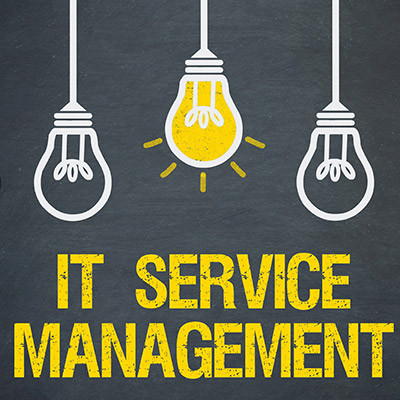You know what they say: “Don’t make a promise that you can’t keep.” Making promises to your clients and customers can be a sticky business, and we all know that IT can be a bit unpredictable, making promises difficult to manage. Still, we’re confident that we can promise the following three guarantees for your business.

- Home
- About Us
- IT Services
- Understanding IT
- Understanding Shadow IT
- Understanding Your Virtual Identity
- Understanding the Modern Office
- IT Threat Glossary
- Understanding Business Continuity
- Windows Server 2003: End of Life
- Understanding the Internet of Things
- Understanding Network Security
- Understanding SOX
- Understanding BYOD
- Understanding PCI DSS
- Windows XP End of Life
- Understanding HIPAA
- Cloud Computing
- News & Events
- Blog
- Support
- Contact Us
- Register
- Login
Texas Professional IT Services LLC Blog
Who makes the decisions related to technology for your business? If you’re the one calling the shots, can you honestly say you have all the knowledge necessary to make informed decisions regarding your technology infrastructure’s future? If the answer is “no,” we’ve got just the service for you: a virtual CIO.
Now that the holidays have passed and are winding down, you may need to phase out some of your old technology to make room for the new. Maybe you’re looking to the new year as an opportunity to upgrade some of the tech your business uses. In either case, it is essential to dispose of your old tools responsibly and sustainably.
One of the most challenging parts of running a modern business is securing it from today’s growing list of threats. If you don’t take cybersecurity seriously, there is a real risk that your business will be the next local or national headline about the dangers of cybersecurity issues. One of the easiest ways to prevent yourself from becoming another statistic is to hire a security consultant.
Nobody likes getting big, unexpected bills from tech companies—neither the business owners who have to pay them nor the employees who might feel responsible for causing them. Small businesses face a tough choice: spend money to keep employees productive or save money and deal with slowdowns.
By now, you know that every business needs to prioritize its entire security footprint, including technology. The security technology used in businesses today has a huge effect on the overall security of an organization. This means that you have to have a coordinated effort that allows your security initiatives to consider your business’ IT. In today’s blog, we’ll show you how effective organizations consolidate their security using IT.
One sure sign of a healthy business is that it is growing—possibly to the point that your office space seems less and less spacious. Time to move!
But not so fast: what about your IT infrastructure? Are you prepared to move it? How does one even begin to do that?
You might wonder how your business can possibly stand up to the countless cybersecurity threats out there, as even with training for your employees, it seems likely that something bad will happen eventually. This defeatist attitude isn’t necessarily productive, and it’s actually one that your team might embody if you don’t frame your training in the right way. Let’s look at some ways you should not bring up cybersecurity training and why you might be inadvertently sinking your successes.
When a business goes into action to improve itself, it typically goes into the process thinking that whatever changes it makes can significantly affect how it functions. Unfortunately, this isn’t always the case. Today, we’ll discuss how professional consultants provide a perspective that can revolutionize how your business operates.
Most of us know that Santa Claus lives at the North Pole, but fewer know that he’s specifically built his big castle and workshop someplace called the Laughing Valley. There, he and all the elves, sprites, pixies, and fairies that help him make his toys live and work to give the children of the world their presents each year.
All that being the case, even Santa and his team need a little help every once in a while.
Running a business is rarely easy. There are a lot of moving parts that require attention and there are only so many hours in the day to get everything done. As technology professionals, we often notice that small business owners can do themselves a disservice by not truly understanding their business—whether that be by having delusions of grandeur or by not having the proper perspective that would allow them to do more to build sustained and consistent prosperity. In this week’s blog we take a look at some of the ways that business owners hinder their chance of success.
We could (and usually do) talk about managed services all day long…and to be honest, it’s easy to do, just because there are so many ways that they benefit a business. Today, we wanted to focus our attention on one specific benefit that managed services offer: the inherent proactivity they feature.
The average IT infrastructure is made up of dozens of technology solutions that all work in tandem to ensure your business’ success… at least, that’s how it’s supposed to work. Oftentimes, you’ll need to contact your technology vendors to either procure new solutions or get your existing ones to work with theirs. How do vendor relations figure into your company’s prolonged success?
Nowadays, technology and business are intimately interconnected, the success of your operations and processes largely informed by the tools you have in place. Let’s go over three ways you can help boost your potential success even further by implementing the right methods.
You might have encountered the term MSP while navigating our website, but what does it mean to be a managed service provider? Today we want to get into the nitty-gritty of what we do for our clients and how you can benefit from our services. It’s our goal to show just why managed services have completely changed the landscape of business as we know it today.
There are a lot of threats out there that can place some pressure on your business to think and act a certain way, but unless you are actively searching for threats on your network, you might find yourself coming up short in regards to network security. Why is monitoring your network so important, even with preventative measures in place? It all starts with imagining the worst-case scenario.
Sometimes a business model or way of managing something complex comes along that changes the game for countless businesses, industries, and organizations. One such model is managed IT services, and it can effectively replace the way you used to manage your technology with a better, more efficient method. It can impact your budget, increase your bottom line, and save you countless hours throughout the workday.
Look, we get it; technology management is not easy, especially for small business owners who already wear a lot of hats. The last thing you want to do is add even more to your plate when you already have so much going on. That’s why we offer managed IT services to SMBs in the area. But what if we told you that managed IT services aren’t just for small businesses, but for all types of companies and organizations? Let’s discuss why this is the case.
We work with a lot of businesses, but one in particular may surprise you. Let’s talk about how our services made a certain organization’s critical processes a lot easier to manage during their busiest time of year:
When you get excited to implement a new technology solution for your business, it is easy to let the expectation blind you as to the true value you get from it right out of the box. It’s no fault of your own; it’s human to have expectations that exceed reality. In business, though, it is important that you keep these misconceptions in mind, especially when it comes to your technology systems and implementing them.






















